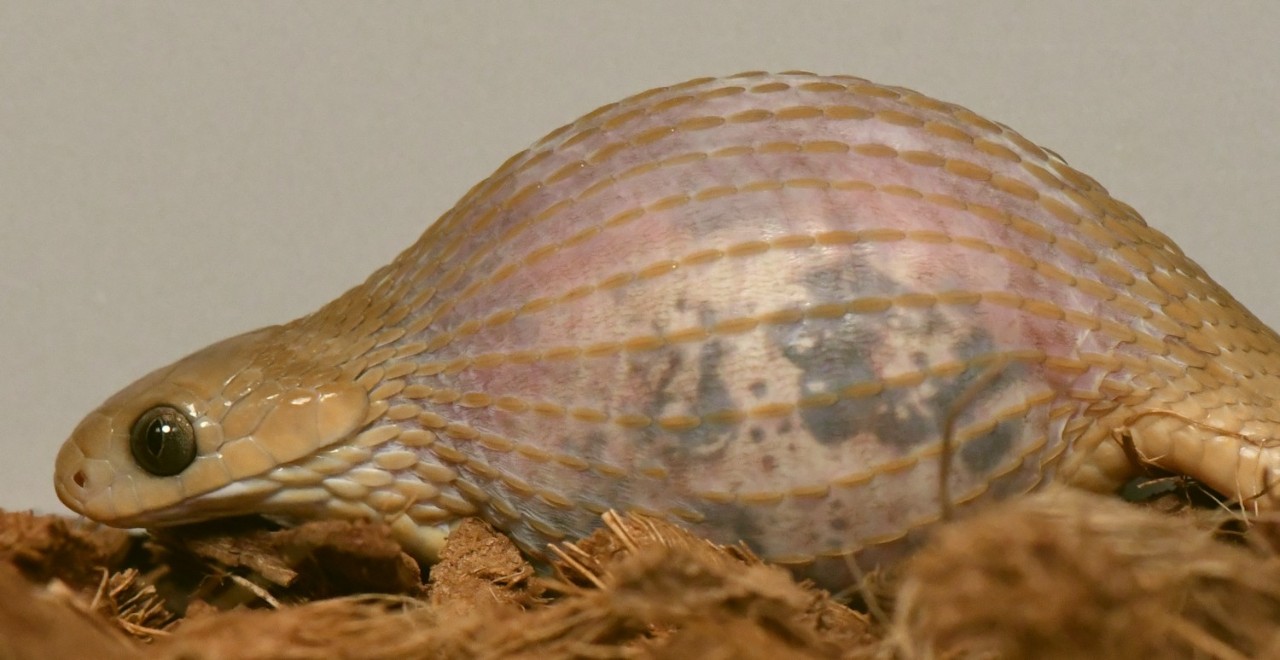
A big gulp for a little snake
The Gans' egg-eater can swallow the biggest prey relative to its size of any snake
Pythons have huge appetites, but which snake around the world would win an eating contest?
Surprisingly, it’s a harmless little African snake that consumes eggs whole.
Biologist Bruce Jayne at the University of Cincinnati discovered that the Gans' egg-eater, or Dasypeltis gansi, can consume bigger prey relative to its own length and mass than even Burmese pythons, among the most massive snakes on Earth.
“They probably would hold the Guinness world record,” said Jayne, a professor of biological sciences in UC’s College of Arts and Sciences.
“It’s spectacular but on a small scale,” he said. “People focus on big snakes eating big things, but if you correct for their size, these little guys are pretty scary.”
The study was published in the Journal of Zoology.
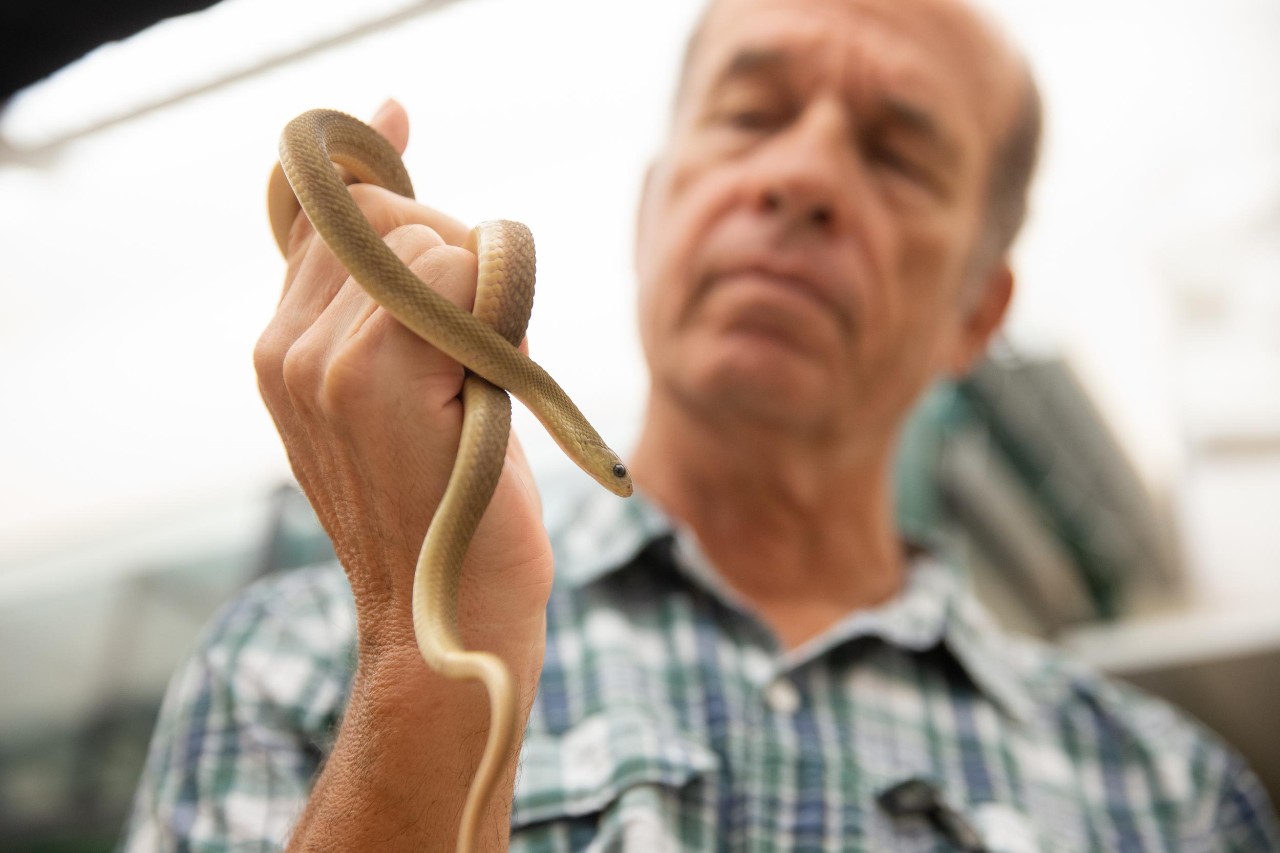
UC Professor Bruce Jayne discovered that an African egg-eating snake can swallow bigger prey relative to its size than even a Burmese python. Photo/Andrew Higley/UC Marketing + Brand
How it eats
The Gans’ egg-eating snakes grow to about three feet long. Named for herpetologist Carl Gans, the egg-eater is skinnier than many egg-loving snakes found in the United States such as the yellow rat snake, which is known to pillage chicken coops.
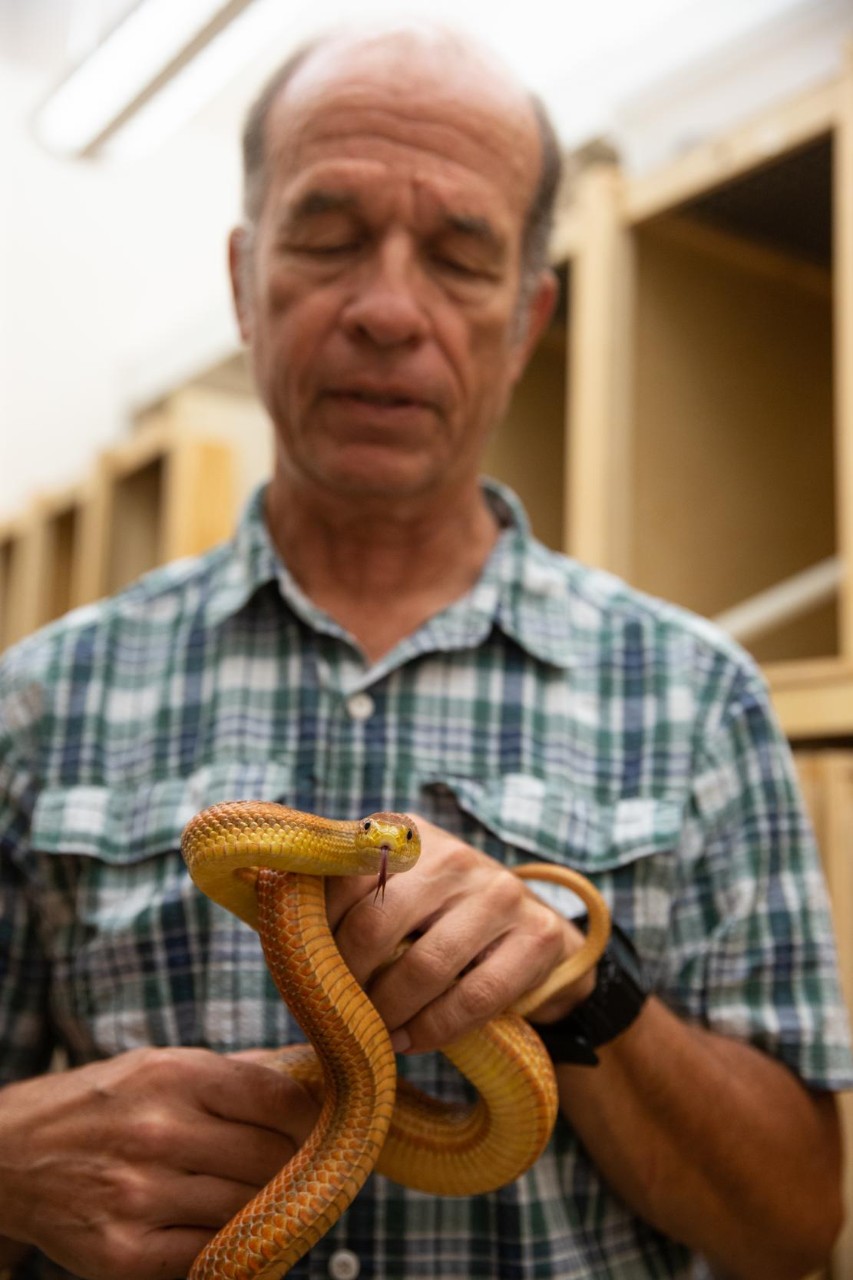
UC biologist Bruce Jayne holds a rat snake in his lab. Like the Gans' egg-eater, yellow rat snakes eat eggs. But the African snake can wolf down far bigger ones for its size. Photo/Andrew Higley/UC Marketing + Brand
But thanks to stretchy skin between its left and right lower jawbones, the Gans’ egg-eater has the ability to consume eggs many times larger than its head.
“They can consume prey three to four times bigger than snakes that are generalists such as the black rat snake,” Jayne said.
The egg-eater consumes the egg whole and contorts its spine to crack it, releasing the gooey contents, before regurgitating the empty, broken shell. Rat snakes, by contrast, typically digest the egg, shell and all.
Burmese pythons are no slouches when it comes to eating big meals. In previous studies, Jayne found that adult pythons can consume deer weighing more than 70 pounds and alligators 100 pounds or more. Still, the little egg eater can consume prey with a cross-sectional area more than twice that of a Burmese python of similar weight.
Others such as the rat snake, queen snake, brown tree snake and western diamondback rattlesnake don’t even come close to the egg-eater.
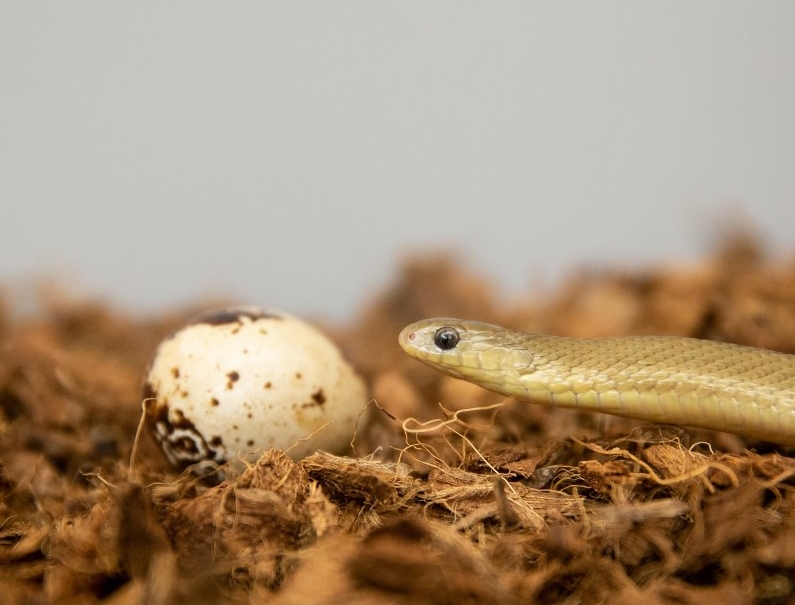
A quail egg is a snack for a Gans' egg-eater, which can swallow whole eggs even bigger than this one in a UC biology lab. Photo/Andrew Higley/UC Marketing + Brand
Jayne said the superpower is an effective survival strategy. Most bird eggs are nearly spherical, like a Ping-Pong ball. Birds, mice and rats are elongated, providing more calories than an egg of the same circumference.
But the Gans’ egg-eater compensates by being able to swallow far bigger eggs for its size, Jayne said.
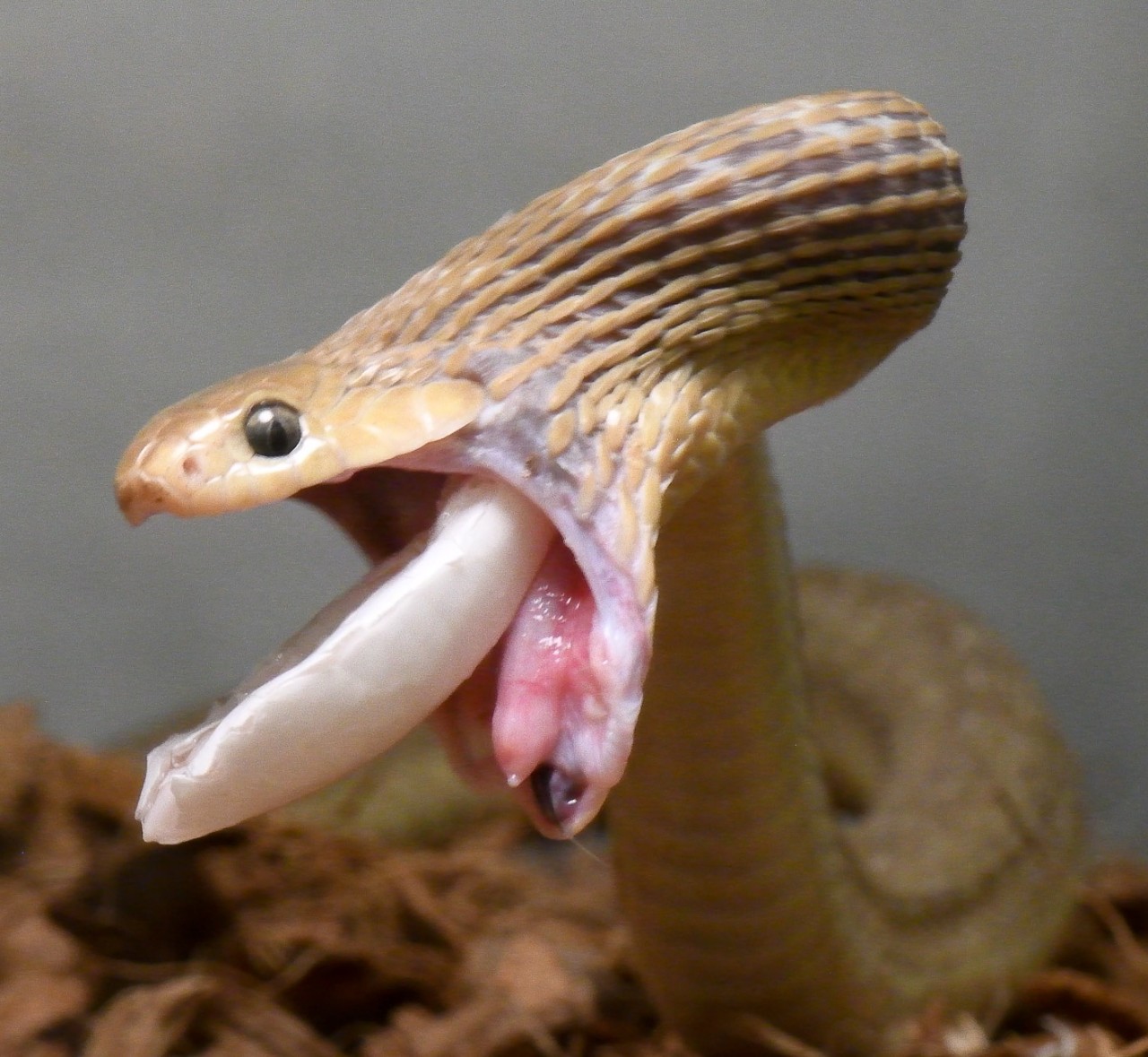
After swallowing the egg whole, the Gan's egg-eater contorts its body to crack it and spits out the empty shell. Photo/Bruce Jayne
“One likely reason this extreme gape evolved in African egg-eating snakes is that they specialize on a prey shape with a modest amount of mass per cross-sectional area,” Jayne said. “That puts a premium on having a wide mouth.”
As a specialist, the Gans’ egg-eater has evolved a soft mouth with precious few teeth, which could interfere with gripping a smooth-shelled egg.
The harmless snakes defend themselves against predators by mimicking venomous saw-scaled vipers, Jayne said.
“They put on quite a show, making a hissing sound by rubbing their scales together. They’ll flatten their heads and strike,” Jayne said. “It’s comical because it’s all bluff. They’re toothless wonders.”
Featured image at top: A Gans' egg-eater swallows an egg whole in a UC biology lab. Photo/Bruce Jayne
Next Lives Here
The University of Cincinnati is leading public urban universities into a new era of innovation and impact. Our faculty, staff and students are saving lives, changing outcomes and bending the future in our city's direction. Next Lives Here.
Related Stories
Ancient Maya used sustainable farming, forestry for millennia
June 24, 2022
University of Cincinnati researchers found evidence of sustainable agriculture and forestry spanning a millennia in one ancient Mayan city.
How to make the faculty job search less discouraging
May 5, 2023
Postdoctoral researchers often get little useful feedback about ways to improve their job applications for faculty positions. So a University of Cincinnati anthropologist set up a pilot program that invited postdoctoral researchers to review each others’ application documents.
Psychedelics may help people reinvent themselves
February 24, 2023
Psychedelics might help people change unwanted behaviors by helping them reinvent their perceptions of themselves, according to new research by the University of Cincinnati.
